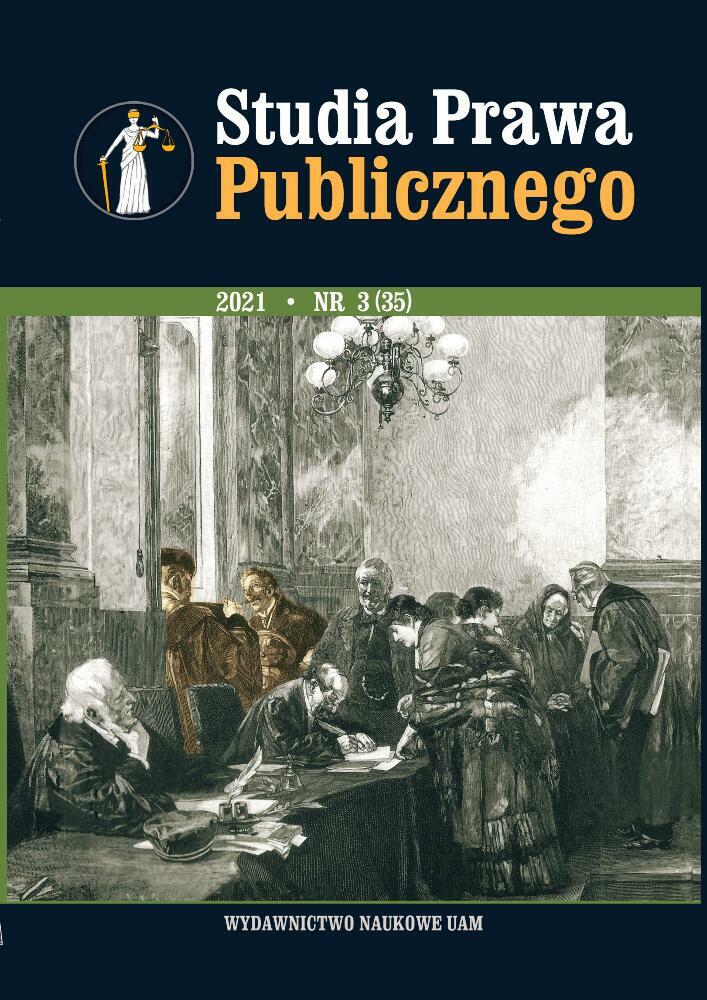Abstrakt
This paper aims to determine the directions of development of the profession of restructuring advisor in Poland. The analysis of the law regulating this profession will help answer the question of whether in its present form the profession of restructuring adviser has the character of a profession of public trust in accordance with Article 17(1) of the Polish Constitution. These findings are important for determining whether the legislator should create a self-governing body of restructuring advisors, which should be a key element in establishing the principles of the profession. A direction of the discussion defined in such a way first requires a historical and legal analysis of the legislation relating to a bankruptcy administrator. This analysis culminates in a description of the process of transformation of the profession of a bankruptcy administrator into the profession of a restructuring advisor and an analysis of the current legislation, which allows determining the nature of the profession of restructuring advisor. The paper deals with the issues of how the professional self-government functions, and the ethics of the profession of restructuring adviser. It discusses the problems of currently operating organizations bringing together persons performing the profession of restructuring adviser, their status, and the validity of the legal acts issued by these entities.
The above remarks on Polish legislation are contrasted with the legal situation in the Federal Republic of Germany to show the extent of the changes in this legislation in Poland over the last thirty years. In this article, attention is drawn to the need to enact additional legislation in this field in Poland. Future directions of the development of the profession of restructuring advisor as a profession of public trust are also evaluated through an analysis of both Polish constitutional law and European Union law, in particular,
Directive 2019/1023 of the European Parliament and the Council relating to restructuring and bankruptcy.
Bibliografia
Adamus R., Zarys historii źródeł prawa upadłościowego w Polsce, „Jurysta” 2009, nr 7.
Allerhand M., Prawo upadłościowe z komentarzem, Bielsko-Biała 1994.
Andres D., § 56, w: Insolvenzordnung, pod red. D. Andresa, R. Leithausa, München 2014.
Broll J., Prawo upadłościowe w świetle praktyki sądowej, Warszawa 1995.
Dąbrowski K., Samorząd zawodowy i gospodarczy, w: Administracja publiczna i prawo administracyjne w zarysie, pod red. M. Karpiuka, J. Kowalskiego, Warszawa 2013.
Delhaes W., Römermann V., § 56, w: Insolvenzordnung Kommentar, pod red. J. Nerlicha, V. Römermanna, München 2018.
Feliga P., Stanowisko prawne syndyka w procesie dotyczącym masy upadłości, Warszawa 2013.
Foerster U., Insolvenzrecht, München 2014.
Frind F., Zur Geltungsreichweite und Nutzen einer Berufsverordnung für Insolvenzverwalter, NZI 2018.
Gil I., Sytuacja prawna syndyka masy upadłości, Warszawa 2006.
Gnys A., Konsekwencje wejścia w życie ustawy o licencji syndyka, „Monitor Prawniczy” 2008, nr 5.
Gudowski J., Art. 87, w: Kodeks postępowania cywilnego. Komentarz, t. 1: Postępowanie rozpoznawcze, pod red. T. Erecińskiego, Warszawa 2016.
Hrycaj A., Syndyk masy upadłości, Poznań 2006.
Izdebski H., Sprawowanie pieczy nad należytym wykonywaniem zawodu przez samorządy zawodowe, w: Zawody zaufania publicznego a interes publiczny – korporacyjna reglamentacja versus wolność wykonywania zawodu, Warszawa 2002.
Jacyszyn J., Syndyk masy upadłości, „Rejent” 1993, nr 3–4.
Kosiński K., Rola samorządu zawodowego komorników sądowych w demokratycznym państwie prawnym, „Przegląd Prawa Egzekucyjnego” 2016, nr 6.
Kruth C., Insolvenzverwaltung – Closed Shop für Juristen?, DStR 2018.
Kulesza M., Pojęcie zawodu zaufania publicznego, w: Zawody zaufania publicznego a interes publiczny – korporacyjna reglamentacja versus wolność wykonywania zawodu, Warszawa 2002.
Podel W., Geneza instytucji syndyka masy upadłości na tle rozwoju regulacji prawa upadłościowego, „Rocznik Towarzystwa Naukowego Płockiego” 2013, nr 5.
Pokora A., Stanowisko prawne syndyka masy upadłości, „Rejent” 1997, nr 7–8(75–76).
Szydło M., Art. 17 Konstytucji RP, w: Konstytucja RP. Komentarz do art. 1–86, pod red. M. Safjana, L. Boska, Warszawa 2016.
Trubalski A., Samorządy zawodów zaufania publicznego na przykładzie samorządu radców prawnych, „Studia Iuridica Lublinensia” 2014, nr 21.
Vallender H., Die Zeit ist reif – Plädoyer für eine Berufsordnung für Insolvenzverwalter, NZI 2017.
Waberski M., Tajemnica zawodowa doradcy restrukturyzacyjnego, „Palestra” 2018, nr 7–8.
Wojtczak K., Zawód i jego prawna reglamentacja. Studium z zakresu materialnego prawa administracyjnego, Poznań 1999.
Wołpiuk W.J., Zawód zaufania publicznego z perspektywy prawa konstytucyjnego, w: Zawody zaufania publicznego a interes publiczny – korporacyjna reglamentacja versus wolność wykonywania zawodu, Warszawa 2002.
Zięba-Załucka H., Samorząd zawodowy w świetle Konstytucji RP, „Monitor Prawniczy” 2005, nr 10.
Licencja
Prawa autorskie (c) 2021 Filip Zygmunt Wichrowski

Utwór dostępny jest na licencji Creative Commons Uznanie autorstwa – Użycie niekomercyjne – Bez utworów zależnych 4.0 Międzynarodowe.

